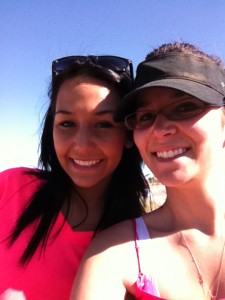Webinar Overview:
Since the publication of The 7 Habits of Highly Effective People in 1989, the work of Stephen Covey has enabled millions to move from dependency on others, to independence, and on to interdependence. With his first book, and the 2004 sequel The 8th Habit serving as the foundation, this webinar provides valuable applications to today’s college and university students. Having employed Covey’s work in his leadership courses and workshops, Dr. Lyons has attained widespread feedback from students and faculty alike confirming the value of these proven habits.
Designed For:
Faculty, staff, counselors, advisers, and anyone who works directly with students.
Learning Outcomes:
Participants will gain insights into the viability of the Covey approach for achieving improved self-discipline and accountability among their students.
- Learn and practice strategies for becoming more proactive.
- Encourage students to begin every important task by focusing on the end they seek to attain.
- Understand and practice time management, Covey style.
- The power that is achieved by continually pursuing “win-win” outcomes.
- Understand the power of listening; learning the benefits of seeking to understand the other person before expecting that person to understand us.
- Learn and practice strategies and resources that enhance synergy.
- The benefits of sharpening the saw, i.e. proactively improving one’s own performance.
- The immediate and long-term benefits of finding one’s voice, then helping others find theirs.
| Duration: 1 Hour | |
| Price: $9.99 USD (for webinar recording only) | |
Presenter:
Your webinar presenter, Dr. Richard E. Lyons, has served as a professor of management, department chair, instructional dean, corporate trainer, faculty and staff developer, and independent consultant. His grounding in sound research and quality management practices, as well as deep learning from his varied experiences, has enabled him to exceed expectations of clients systematically.
Richard launched his consulting and presentation practice in 1999, shortly after the publication of his first book, The Adjunct Professor’s Guide to Success. He has since authored three other books – Teaching College in an Age of Accountability, Success Strategies for Adjunct Faculty, and Best Practices for Supporting Adjunct Faculty. His extensive research on these topics and familiarity with best practices that align with that research undergird his consulting. The strategies that he espouses have been well received not only by clients, but also by audiences in dozens of presentations at varied academic conferences.


 Everyone likes a clean home, but few of us like the chore of cleaning. Even worse, we often rely on a cocktail of hazardous substances to make our bathrooms sparkle or our floors shine. Dishwashing detergents often contain phosphates that pollute the groundwater; wood polish generally contains flammable toxins like nitrobenzene; and laundry detergent may contain bleach and other corrosives. We lock these compounds away in closets or under the sink to keep them from our children-but we often don’t consider what they may be doing to our own bodies.
Everyone likes a clean home, but few of us like the chore of cleaning. Even worse, we often rely on a cocktail of hazardous substances to make our bathrooms sparkle or our floors shine. Dishwashing detergents often contain phosphates that pollute the groundwater; wood polish generally contains flammable toxins like nitrobenzene; and laundry detergent may contain bleach and other corrosives. We lock these compounds away in closets or under the sink to keep them from our children-but we often don’t consider what they may be doing to our own bodies.
